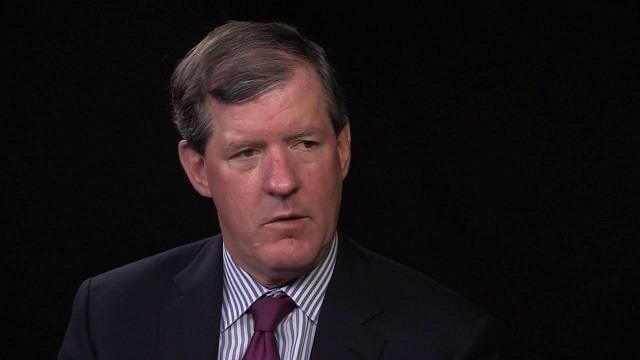
Steering a business without a clear vision of the future is like navigating uncharted waters without a compass. Financial forecasting can provide you with direction.
Regardless of your business’s size or sector, having a clear understanding of what lies ahead financially can be the difference between thriving and merely surviving.
What is financial forecasting?
Financial forecasting is when companies estimate or predict their financial future. Businesses usually use historical data to do this, but market trends can play a role too. It can help you plan for the future and make decisions like choosing call centre software for small business.
Financial forecasting is a bit like a company’s crystal ball. You use past trends and financial data to make predictions about what the next quarter, year, or even five years holds for your company. This helps your plan for things like where to save and where to spend or if there might be any financial bumps to expect.
How to conduct financial forecasting — a mini guide
- Data collection: Begin with gathering historical financial data. This includes sales figures, expenses, and any other relevant financial metrics from the past few years.
- Use software tools: Leverage financial forecasting tools or software. Software that offers ready-to-use templates is always a good choice. You might even be able to find software that automates part of the process. If need be, you can download remote desktop for Mac so you can access your software and reports at all times.
- Analyse external factors: Market trends and economic indicators insights can influence your forecast. You should integrate these into your predictions too.
- Regular updates: Financial forecasting isn’t a one-time activity. As actual data comes in, compare it to your forecasts to understand discrepancies. Revise your forecasts based on actual results and new insights.
- Seek feedback: Engage stakeholders, department heads, and frontline employees for their input.
6 benefits of financial forecasting
1. Aids strategic planning
Whether your company is charting a course for the next five years or deciding where to allocate resources in the next quarter, having a clear projection of financial outcomes can be invaluable.
Financial forecasting helps you create this projection. Whether you’re trying to improve the profitability of your business or concerned about your outgoings, a clear financial forecast should be a central part of your strategic plan.
Tip: Your strategy should have clear financial metrics tied to any aims. For instance, if you aim to expand your market reach, quantify that in terms of expected additional revenue or market share.
2. Improve risk mitigation
As a business owner or manager, you’re probably well aware of the impact an unexpected financial setback can have. If you want to mitigate these risks and ensure you’re ready for any setbacks, financial forecasting is a must.
This is because by regularly forecasting, your business can identify potential pitfalls or downturns in cash flow before they become critical issues. Armed with this forecast, you can take proactive steps, such as shifting resources or revisiting contract terms.
Tip: Conduct sensitivity analysis as part of your forecasting. This involves changing one variable at a time (e.g., sales volume, production costs, or needing to garnish wages) to see how susceptible your forecasts are to changes in certain areas.
3. Optimises resource allocation
With precise financial forecasting, your business can wisely decide where to channel its resources. This might mean figuring out which departments need a boost, which projects to kickstart, or when it’s time to bring in vital team members.
Tip: After finalising your forecasts, create a prioritised list of resource needs. Regularly revisit this list and adjust based on forecast accuracy and evolving business needs.
4. Refine your investment pitches
For businesses seeking external funding, whether from bank loans, venture capitalists, or other investors, a robust financial forecast is often a prerequisite.
Investors and lenders want to have a clear sense of your business’s financial future. They’re unlikely to invest without this. A data-backed forecast can win their trust and improve your chances of getting the investment you need.
Tip: Forecasts may be number-driven, but you don’t need to remove your business’s personality and uniqueness when using a forecast in a pitch. You could highlight your projections with visuals and always be ready to talk through logic and figures shaping your predictions.
5. Refines your performance monitoring
Once a financial forecast has been set, it provides a benchmark against which actual performance can be measured. Regularly comparing actual results to forecasts can help businesses understand where they might be deviating from expected outcomes.
It’s also a great opportunity to review your expenses and company subscriptions, from payroll setups to call routing software.
Tip: Implement a monthly or quarterly review process where you compare actual results with forecasts.
6. Helps you make confident decisions
With a clear financial forecast, not only will it be easier for you to make business decisions, you can also be confident that your choices are backed by financial data. Whether it’s launching a new product, entering a new market, or committing to a large capital expenditure, having a sense of the likely financial outcomes can be immensely reassuring.
Tip: When faced with a major decision, run a scenario analysis based on your forecasts. This means creating different versions of your forecast for best-case, worst-case, and most-likely outcomes related to that decision.
Conclusion: Making decisions based on forecasts
No matter the size or sector of a business, financial forecasting should be central to your strategies. No forecast can predict the future with absolute certainty. Financial forecasting does, however, offer a useful estimation of future profits and costs.
If you’re not already doing financial forecasting, now’s the time to start. With financial forecasting data in hand, you can make better business decisions thanks to getting a comprehensive view of how your business fared in the past and how you expect it to succeed in the future.


























